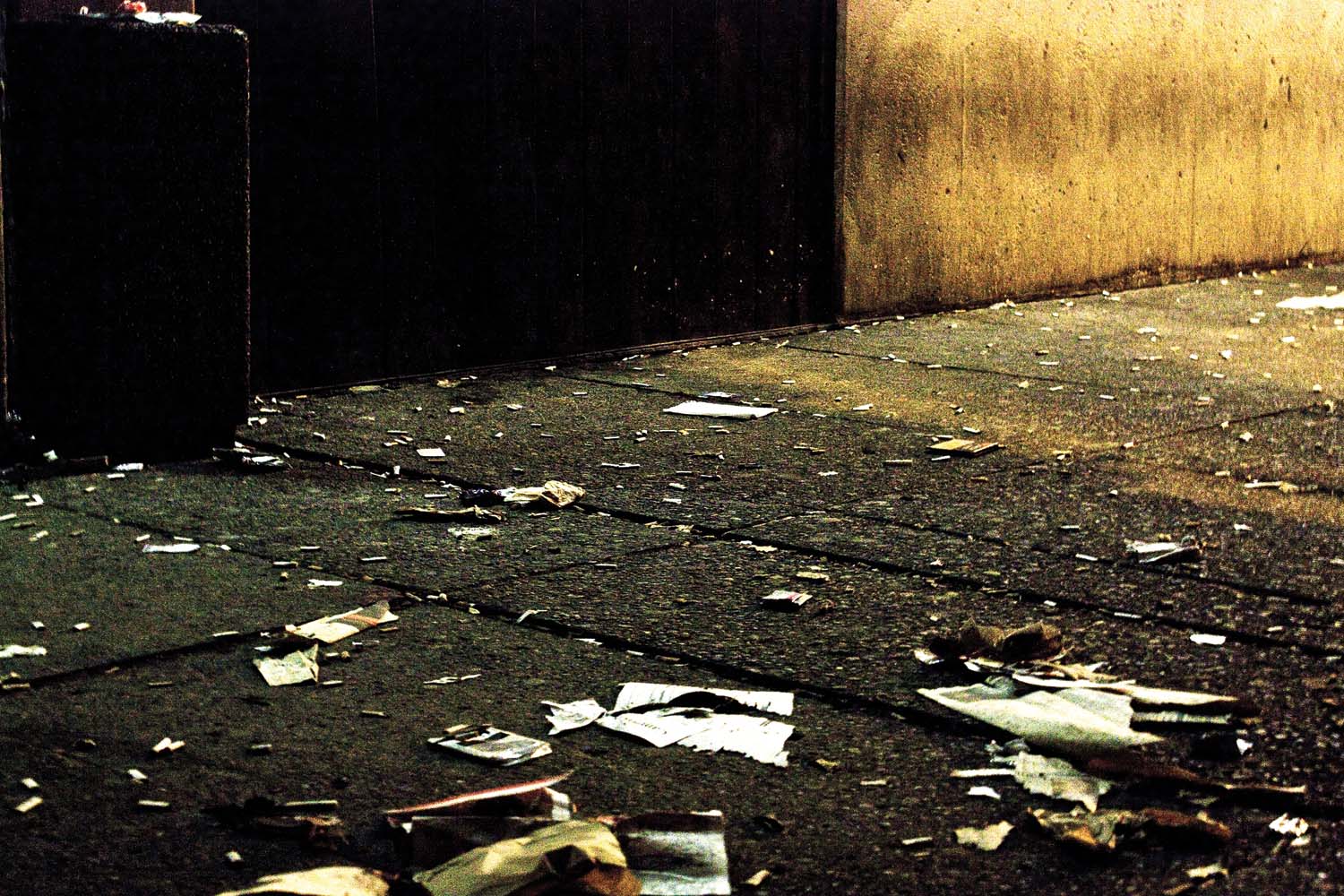Features & Opinions Editor
@excalweb
Every Friday at 6 a.m., York grounds team leader Megan Collins is picking up garbage. With gloved hands, Collins sweeps up the crumpled posters and flattened cigarette butts surrounding York commons, broom and bag in hand. Once the bag is full, she combines it with the garbage bag in the waste bin where people toss just about anything. Some days are easier than others, but after pub night, for instance, the accumulation of garbage and litter is at its highest, and Collins is left to clean it up.
On average, it takes her about two and a half hours to clean up the mess on the grounds and around garbages, and on average she finishes the day shift with 20-25 bags. In total, groundskeepers go through 200 bags a day.
“The hours go painstakingly slow, especially when there is a lot of litter,” says Collins, who has cleaned up just about everything that students leave behind—even fecal matter (gross).
She says she doesn’t mind the morning solitude or the cool weather, but it’s a dirty job. Some days it gets frustrating seeing students drop garbage right in front of her. Worst of all are the students who complain and grumble about an area that has yet to be cleaned and those who ignore the work that she has already done. It’s a thankless job.
At York, it’s not hard to find litter. All over the campus, there are napkins, food wrappers, and paper lying around to be picked up. According to Tim Haagsma, manager of Grounds, Fleet, and Waste Management, the biggest litter bugs are smokers who drop hundreds of cigarette butts every day.
“It’s frustrating for the staff to pick these stupid things up, and we have never found an easy way to do that,” says Haagsma. “Some guys will use the hand held blowers to blow it in a corner, and they can come along and sweep it from there. But no matter how you slice it, it takes time.”
Newspaper readers are the other culprit. Most of the time, people will leave behind their newspaper on a bench or on the lawn, and the wind will blow thousands of pages all across campus. Two newspapers alone blowing in the wind can make a huge mess in the commons.
Litter goes unnoticed by students, staff, and faculty simply because by the time they arrive to the campus, the place is already clean.
“By far, the majority is gone by 8 a.m. every day, even on weekends,” says Haagsma.
This may be why members of the York community litter carelessly, but another possibility is that none feel a sense of personal ownership with the university. York is largely a commuter school—people come and go, and the sight of garbage does not weigh on them at all.
Collins’ best guess is that people think that someone else will clean up their litter and that it’s not their personal responsibility, while others simply don’t consider the consequences.
“I just don’t think they think about it,” says Collins. “They’ll put their cup down and forget about it.”
Though the effects of litter may not affect individuals at York directly, they do show up eventually. Back in February, Excalibur chronicled an ant infestation in McLaughlin College and the cause was none other than spilled pop left behind.
To many like Haagsma and Collins, it’s a frustration to say the least.
“It would be far superior if my staff could be spending their time beautifying the campus by maintaining gardens than just to pick up litter,” says Haagsma.
Though the attitude at York doesn’t seem like it will change any time soon, Haagsma is hoping that with more awareness campaigns, the students, staff, and faculty will make an effort to reduce the amount of litter the school produces.
“Most students are here for four years and then they’re gone,” says Haagsma. “There is a new batch of people to educate, so during frosh week, staff are quite active. It’s an ongoing part of our jobs.” He says that students can apply for part-time summer jobs where they can experience what’s it like to clean up the community.
Collins is relieved and tired at the end of each long day. As soon as work is done, she spends time working on her side business, making baked goods for customers. The better part of her day is not having to think about tomorrow, when she’ll have to clean up after the York community once again.




